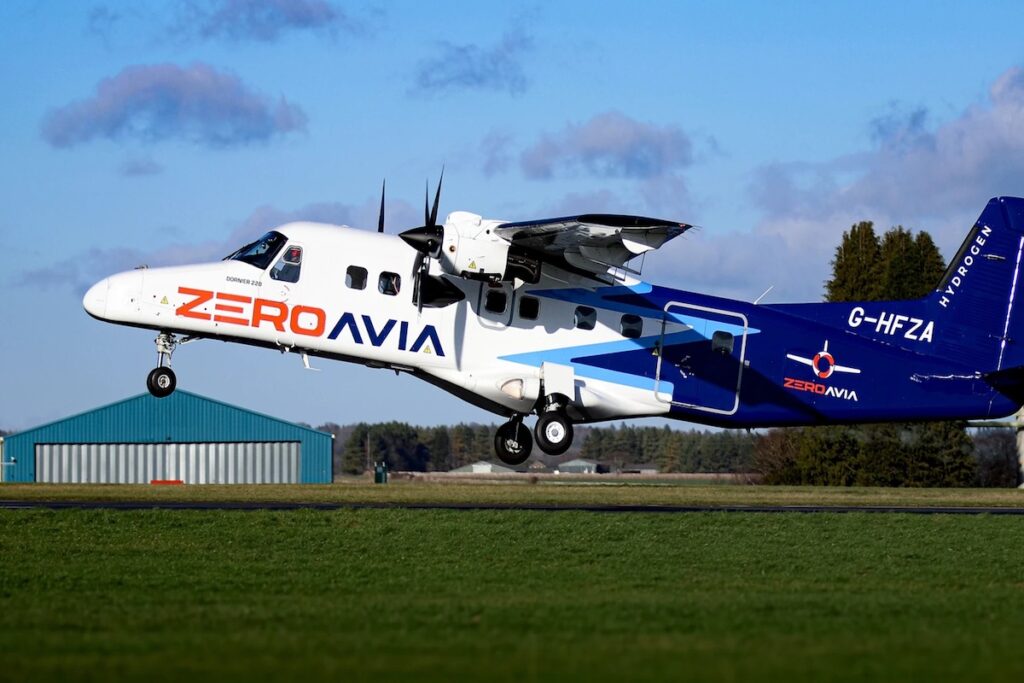Hydrogen aviation startup ZeroAvia announced on September 18, 2023, that aerospace giant Airbus, a company that already has its own hydrogen propulsion program, has led the company’s latest financing round.
Other leading investors include Barclays Sustainable Impact Capital and NEOM, a Saudi entity that is developing a futuristic greenfield city near the Red Sea.
The latter two were already investors in ZeroAvia, having participated in previous investment rounds.
Among the current investors also participating in the fresh funding round are Breakthrough Energy Ventures (a firm linked to Microsoft founder, Bill Gates), Horizons Ventures, Alaska Airlines, Ecosystem Integrity Fund, Summa Equity, AP Ventures, and Amazon Climate Pledge Fund.
Besides the financial dimension of this deal, Airbus’ involvement in the ZeroAvia project also has an industrial element that may help accelerate the development and certification of hydrogen powertrains for aircraft. Airbus and ZeroAvia have also agreed to collaborate in several areas that are key to the development of a viable hydrogen aviation ecosystem. In addition to fuel cell and powertrain development, these include liquid hydrogen storage and refueling infrastructure at airfields.
The freshly raised funds will also help ZeroAvia continue to develop a more powerful powertrain, the 2-5.4MW ZA2000, with which it will be able to test its technology on a larger Dash 8 Q400 turboprop aircraft (provided by Alaska Airlines) capable of carrying up to 76 passengers. Until now, ZeroAvia tested its smaller ZA600 powertrain on a 19-seat Dornier Do228 aircraft.
Testing of the new ZA2000 powertrain is expected to commence in 2024.
The news follows an announcement made on September 7, 2023, that another company in the hydrogen aviation domain, Germany-based H2FLY (a subsidiary of eVTOL developer Joby Aviation) had successfully completed the first piloted test flight using liquid hydrogen as fuel.
This milestone was achieved within the framework of Project HEAVEN, a European research program led by a consortium of several firms in the sustainable aviation field and supported by several European governments.

